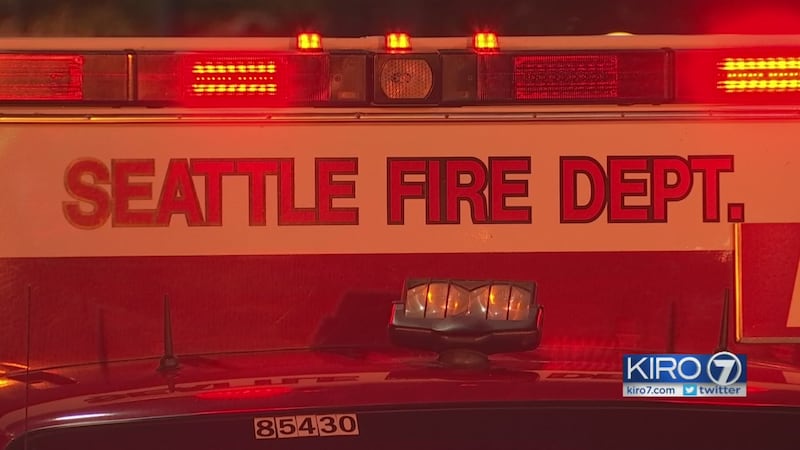The city of Seattle has fined an ambulance company hundreds of thousands of dollars for responding to calls late, missing the standards laid out in its contract with the city.
KIRO 7 discovered American Medical Response paid the city nearly $900,000 in fines in 2016. The city’s firefighters call AMR to transport patients when a situation is not a life-threatening emergency but still requires medical care.
Ethan McConaghy called 911 to his West Seattle home in July of 2016 when his younger brother and his brother’s friend arrived home on a weekend night. He discovered they have been drinking underage, and his brother’s friend, Damonte, quickly became unresponsive.
“It was scary,” he said. “His breathing slowed down. He's not talking back… we're shaking him,” McConaghy said.
>> Get breaking news, livestreams and story updates anytime on the KIRO 7 News app
Seattle firefighters arrived quickly, he said, assessed the situation, and called AMR. Then they waited.
“I was walking, pacing back and forth up here, just waiting on them, hoping that they would get here,” he said.
According to its contract with the city, AMR was supposed to reach McConaghy within 10 minutes.
Data KIRO 7 asked for from the Seattle Fire Department shows that the ambulance was dispatched at 12:26AM from up near the University of Washington Medical Center.
But it wasn't until 1:01 AM that it arrived at McConaghy’s home, 35 minutes later, and essentially 25 minutes late.
KIRO 7 asked Seattle Fire Chief Harold Scoggins what his message would be to callers like Ethan McConaghy who are forced to wait.
“Well, my message would first be -- I apologize that you had to wait that long,” Scoggins said. “I hope our firefighters took great care of you.”
Scoggins stressed that firefighters call AMR when they’ve determined a situation is not life-threatening.
“You're saying public safety is not in danger here?” KIRO 7 said.
“No, no,” Scoggins said. He emphasized that firefighters stay on the scene taking care of the patient until AMR arrives.
“And if they needed to call a higher level of care or get someone to the hospital faster, they would take care of that,” he said.
But that keeps that firefighter crew from responding to other calls and KIRO 7 discovered that sometimes, firefighters are waiting for a long time.
Records KIRO 7 obtained show the city fined AMR $896,220 in 2016 for late responses ranging from a minute to more than an hour.
“Those fines are in place for a reason… and those standards are in place for a reason,” KIRO 7 said.
“Absolutely, they are,” Chief Scoggins said.
“What is your response to that?”
“Well, AMR’s a partner, and I know how hard they’re working,” he said.
After speaking with the fire chief, KIRO 7 wanted to sit down with AMR officials themselves to ask exactly what they’re doing to improve response times and their response to callers like McConaghy. However, they declined an on-camera interview.
Via email, AMR said it’s dealing with several challenges, including a 32% increase in transports over the past five years, low reimbursement rates under Medicare and Medicaid, a higher number of uninsured patients, and increased traffic congestion.
AMR’s Director of Communications for the Seattle area, Brant Butte, told KIRO 7 via email that the company has hired 150 EMTs in the past year by hiring outside the region and offering hiring bonuses. Butte said they’ve also been conducting their own EMT classes to get staff trained quickly.
Ethan McConaghy said faster service can’t come too soon when people are worried and need to wait.
“I wish they would do what they were supposed to do,” he said.
KIRO 7 followed up with AMR about McConaghy’s specific case and Butte said according to their records, the responding unit was delayed because it encountered traffic on I-5. We confirmed a stretch of southbound I-5 was closed between midnight and 5 a.m. that day for routine maintenance and testing of the fire suppression system under the Washington State Convention Center.
As for any kind of GPS that would have rerouted around that, AMR said it has a system connected to dispatch and that crews also use their cell phones for comparison.
Cox Media Group








